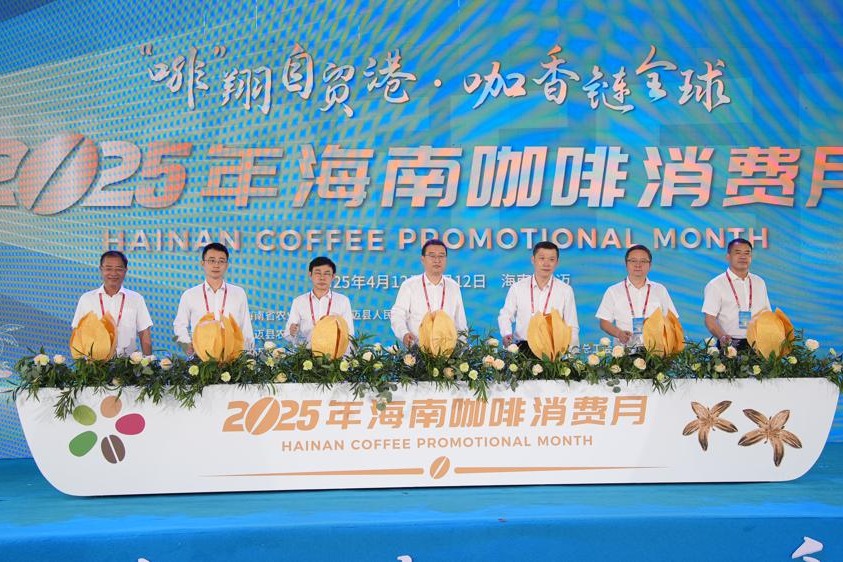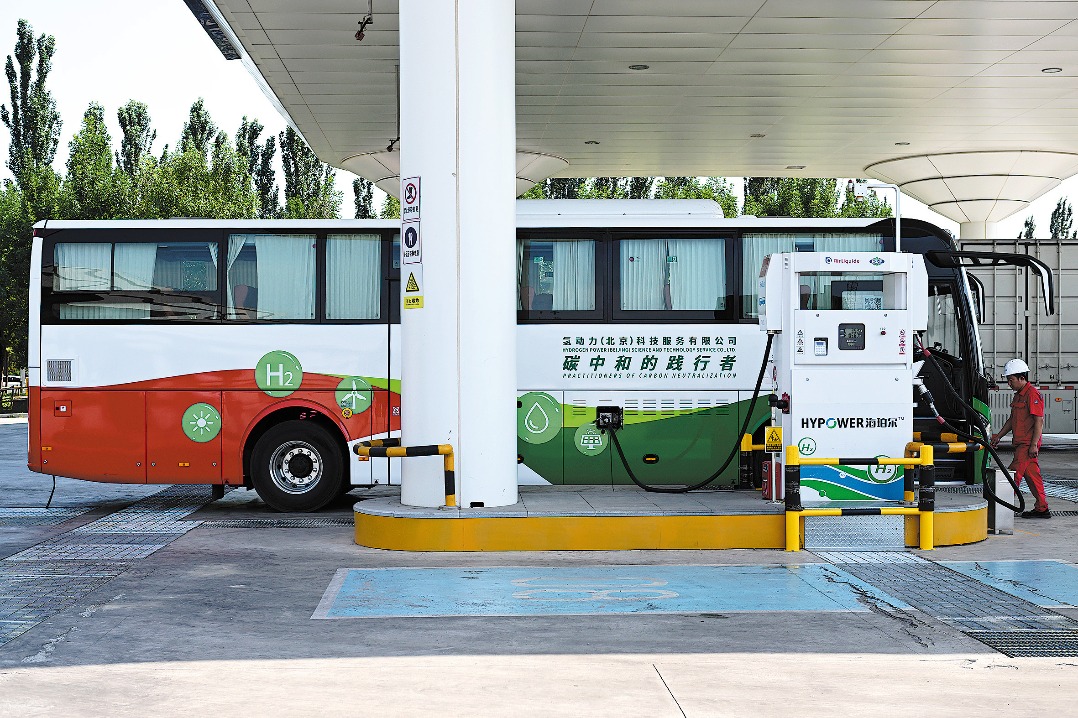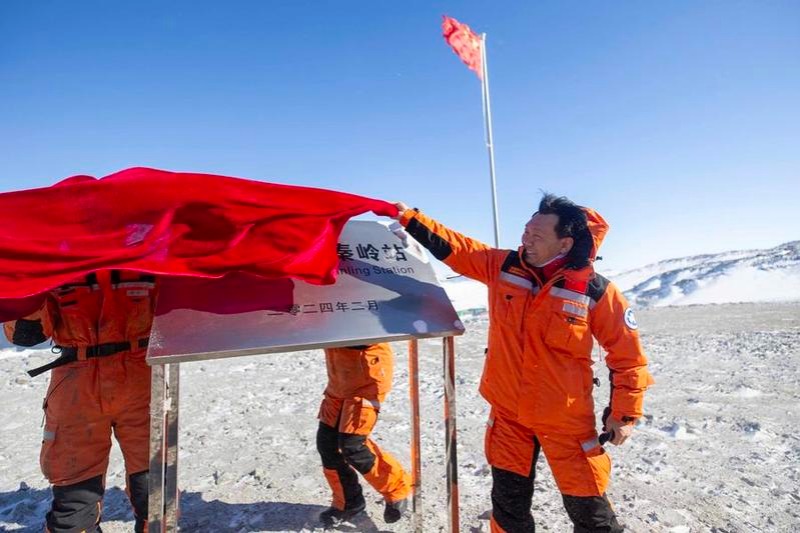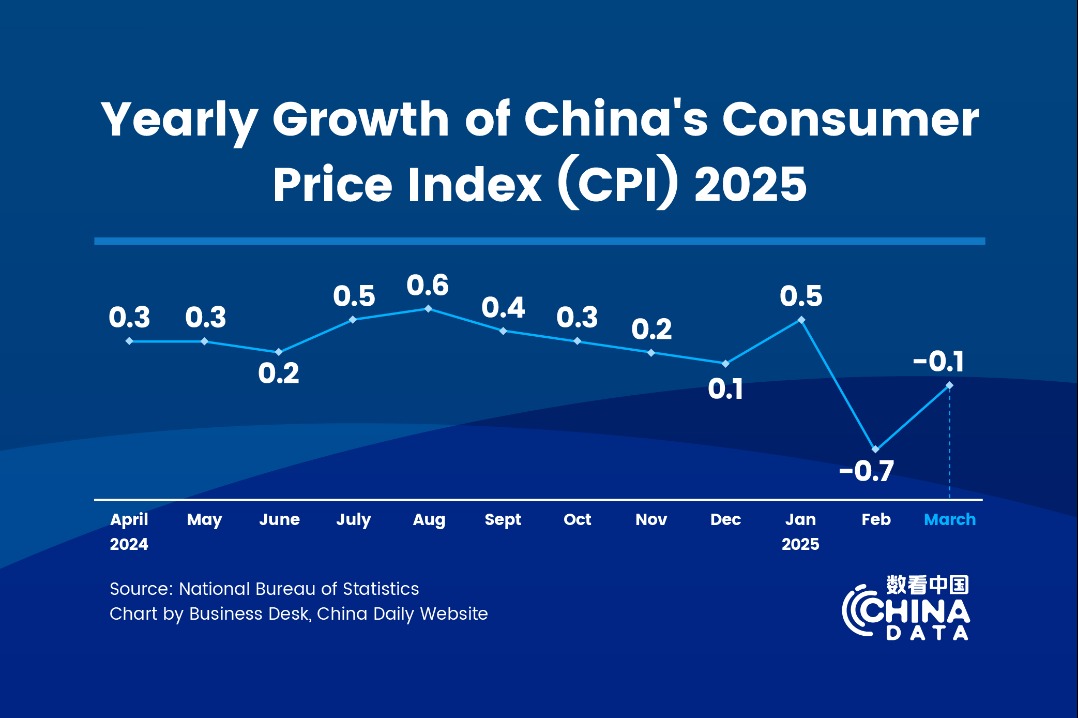Tariff exemption highlights China's hub role





China has called on the United States to decisively correct its mistake and fully abandon the erroneous approach of imposing "reciprocal tariffs", as experts said that the US government's decision to exempt major electronics from its sweeping tariff plan highlights China's crucial role as a world manufacturing hub for electronics and the US' heavy reliance on Asia's supply chains.
The comments came after US Customs and Border Protection announced late Friday that smartphones, computers, laptops, semiconductor devices, memory chips and flat panel displays are among exempted products.
On Sunday, a spokesperson for the Ministry of Commerce said: "We have noted that this marks the second adjustment the US has made to its policy since it postponed the imposition of high 'reciprocal tariffs' on certain trading partners on April 10. This can be seen as a small step toward correcting its erroneous unilateral practice of 'reciprocal tariffs'."
The exemptions will apply to the US government's steep "reciprocal tariffs" imposed on dozens of countries.
Zhang Li, president of the China Center for Information Industry Development, said the exemptions prove "how important China is to major US tech companies that rely heavily on the country for manufacturing and innovation".
It is also a recognition of the extreme difficulty that Washington faces in bringing manufacturing back to the US, Zhang added.
As the world's largest manufacturing country, China ranks first globally in terms of output for more than 40 percent of the world's 500 major industrial products, according to the Ministry of Industry and Information Technology.
Smartphones were the top US import from China in 2024, totaling $41.7 billion, while Chinese-built laptops ranked second at $33.1 billion, according to US Census Bureau data.
Los Angeles-based Wedbush Securities said on Saturday that with the tariff exclusion, big tech companies like Apple, Nvidia, Microsoft and the broader tech industry can "breathe a huge sigh of relief this weekend into Monday".
Wedbush estimated that roughly 90 percent of Apple's iPhone production and assembly is based in China.
Bai Ming, a researcher at the Chinese Academy of International Trade and Economic Cooperation in Beijing, warned about being overly optimistic on the exemption's impact.
Uncertainty is the biggest certainty when it comes to US tariff policies, and changes might happen at any time, Bai added.
Molson Hart, founder and president of Viahart, a US manufacturer of educational toys, said in a blog post that while US President Donald Trump's stated goal is to bring manufacturing back to the US and to "make America wealthy again", the tariffs may achieve the opposite while making the US poorer in the process.
The challenges to US manufacturing include weak industrial supply chains, lack of expertise and infrastructure, higher labor costs and the time required for "Made in America" production, according to Hart, who has experience in manufacturing in both China and the US.
"The tariffs have frozen business activity because no one wants to take a big risk dependent on a policy that may change next week," he added.
Contact the writers at?masi@chinadaily.com.cn

































